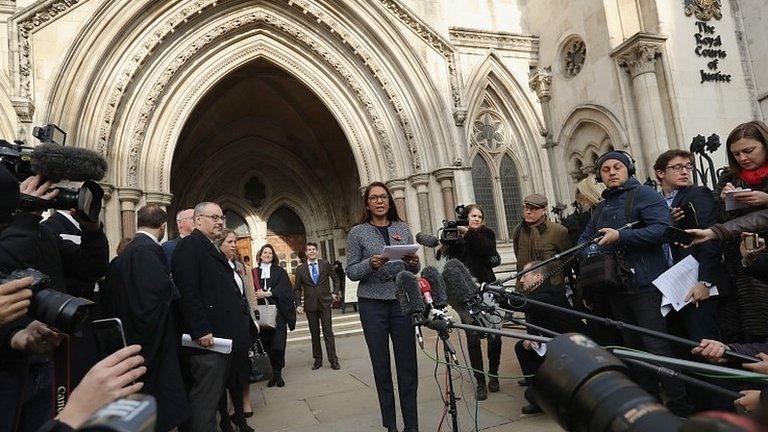Brexit Supreme Court appeal will hear Welsh views
- Published
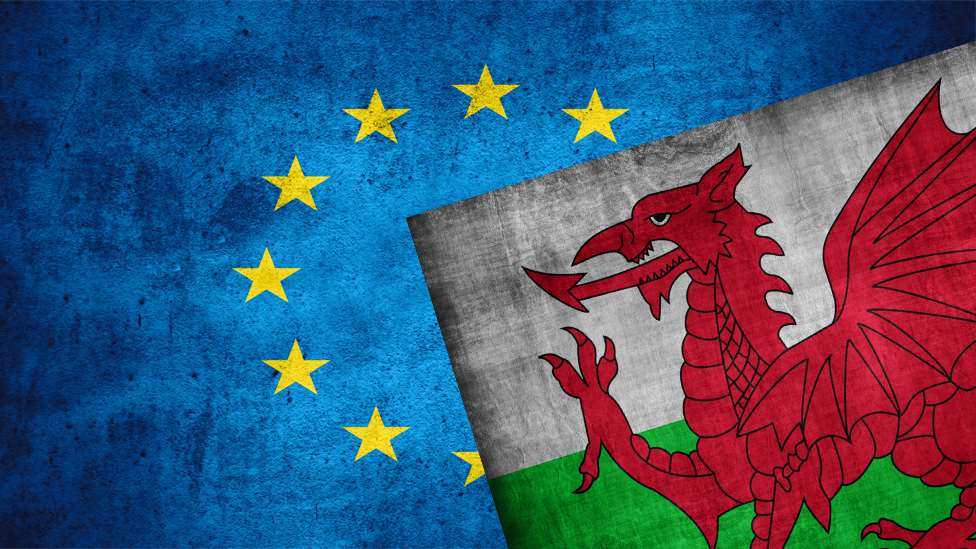
The Welsh and Scottish governments will be involved in the court case over how Brexit should be triggered.
The Supreme Court will hear an appeal by the UK government against a High Court ruling that Theresa May must consult Parliament over the process.
Counsel General Mick Antoniw welcomed news of the permission to intervene.
He said it was not about whether the UK leaves the EU, but to "reinforce the importance of Parliamentary sovereignty and the rule of law".
The UK government claims that the prime minister can invoke Article 50 of the Lisbon Treaty to launch the formal two-year process of leaving the European Union using crown prerogative.
But Welsh and Scottish ministers have objected, claiming the same method could be used to undermine devolution unless the appeal fails.
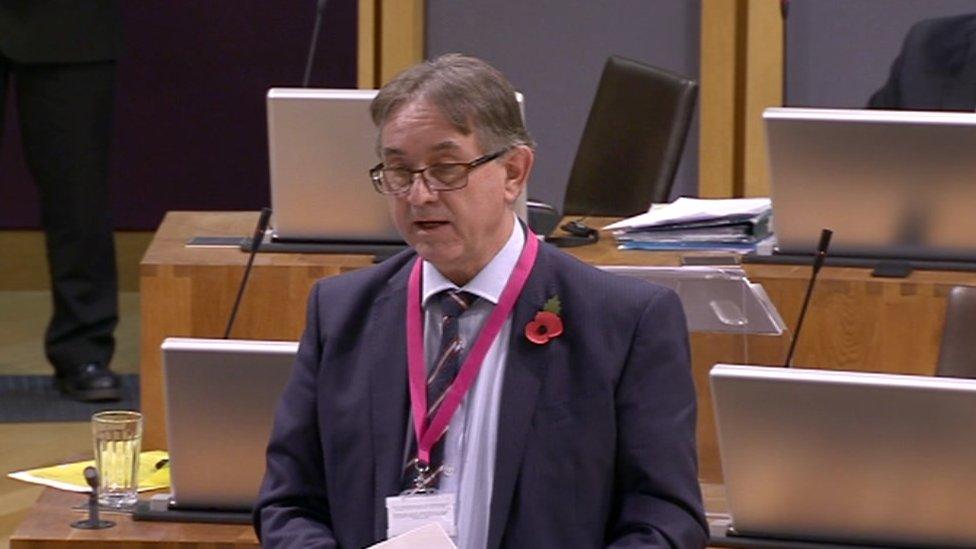
"This case raises issues of profound importance not only in relation to the concept of Parliamentary Sovereignty but also in relation to the wider constitutional arrangements of the United Kingdom and the legal framework for devolution," said Mr Antoniw, AM for Pontypridd and the Welsh Government's senior legal adviser.
"This case is not about whether the UK leaves the EU or not," he added.
"The people have voted for the UK to leave the EU, and the UK will leave.
"The sole legal question at issue is whether the UK government can, as a matter of constitutional law, use the prerogative powers to give notice of withdrawal from the European Union.
"In the Supreme Court, the Welsh Government will seek to reinforce the importance of Parliamentary sovereignty and the rule of law: core, established principles of British constitutional law."

Vaughan Roderick, Welsh Affairs Editor
At the original hearing, lawyers for the Welsh and Scottish governments had been allowed a watching brief but today they've been given permission to take part.
They will have the opportunity to put before the court their concerns and they won't necessarily be the same issues.
For me, the real surprise today would have been if the Supreme Court had said to the Welsh and Scottish governments "no, you can't take part".
It would have been pretty unthinkable for the Supreme Court when considering probably the important constitutional issue to affect the UK in the last 100 years to refuse to hear the views of two of the United Kingdom's governments.

Neil Hamilton, the leader of UKIP in Wales, said it was "fair enough" for the devolved administrations to have their say in court, but he believed too much legal "mumbo-jumbo" was getting in the way of Brexit.
"The people of the UK and Wales have voted for Brexit. No ifs, no buts. What is the point of another vote in the House of Commons?" he asked.
"The Supreme Court should give effect to the decision of the British people".
Welsh Conservative leader Andrew RT Davies said: "What's important is that the UK government is allowed to trigger Article 50 by the end of March, so that we can begin the process of negotiating our withdrawal from the EU.
"I think that most people just want the prime minister's team to get on with the job now, whatever side of the debate they were on during the campaign."
Plaid Cymru's external affairs spokesman Steffan Lewis welcomed the development, saying: "Wales' voice must be heard as crucial decisions are taken over our country's future."
The Supreme Court is expected to start its deliberations on 5 December. The case will take about four days with a ruling in the new year.
Mr Antoniw will not take part himself but will be represented by leading counsel Richard Gordon QC and junior counsel Tom Pascoe.
A spokesperson for the UK government said: "It is a matter for the Supreme Court which applications to intervene are accepted.
"The UK government's position remains the same, and we will be taking strong legal arguments to court next month."
- Published18 November 2016
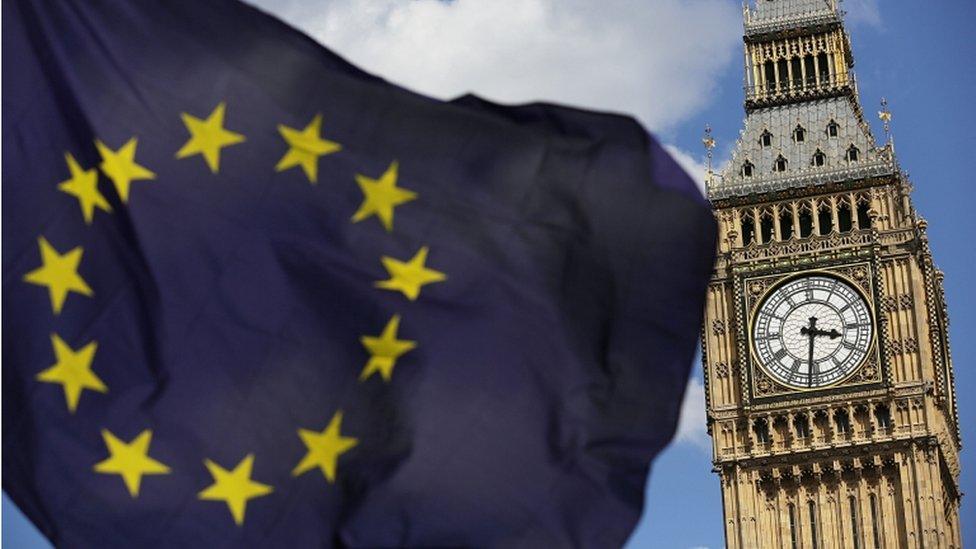
- Published15 November 2016
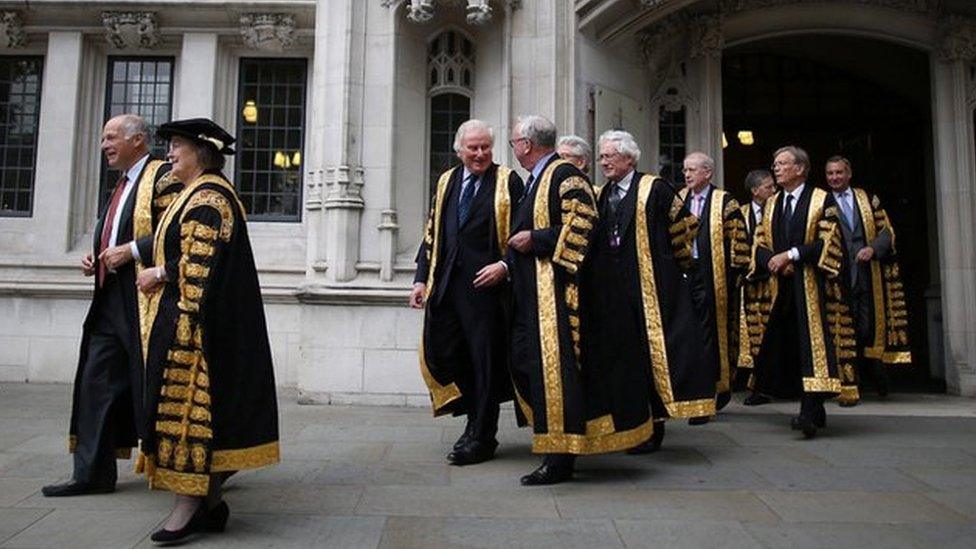
- Published11 November 2016
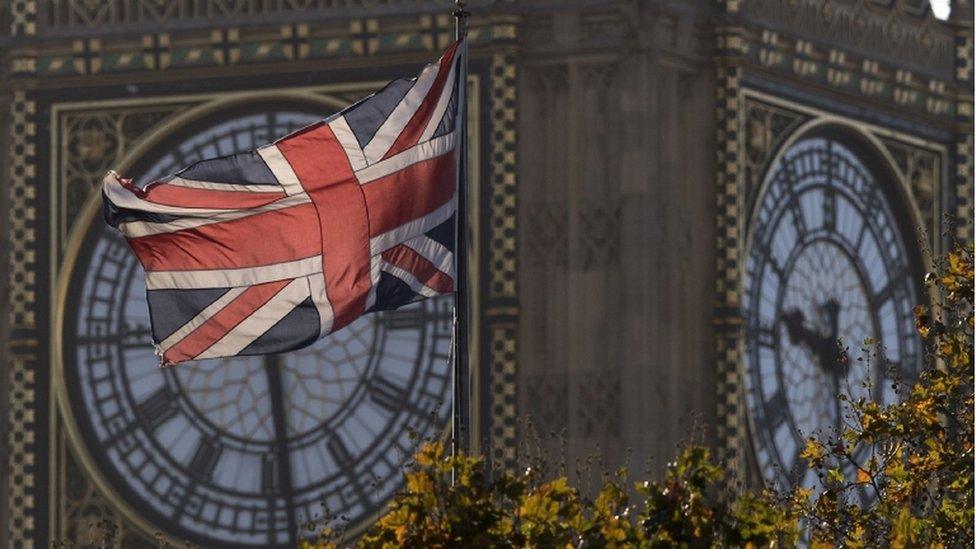
- Published8 November 2016
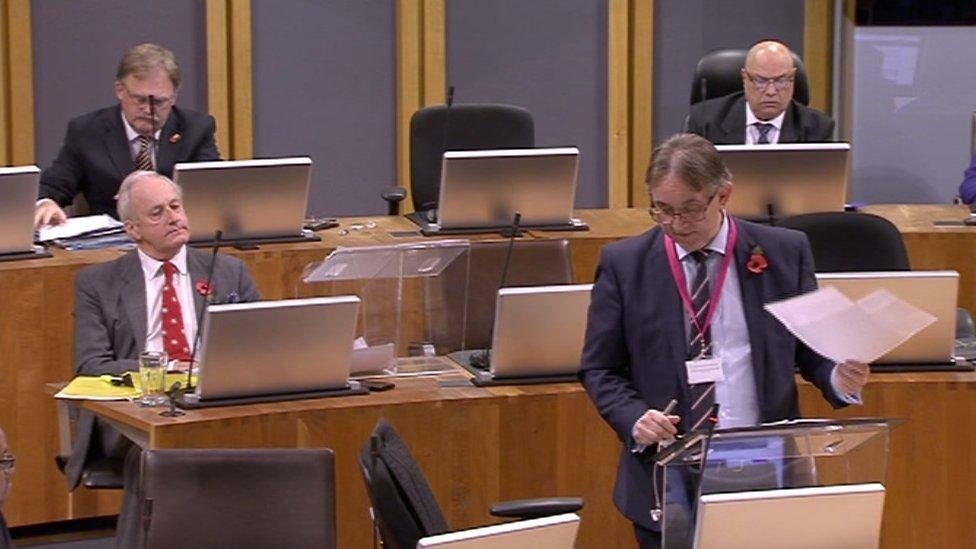
- Published4 November 2016
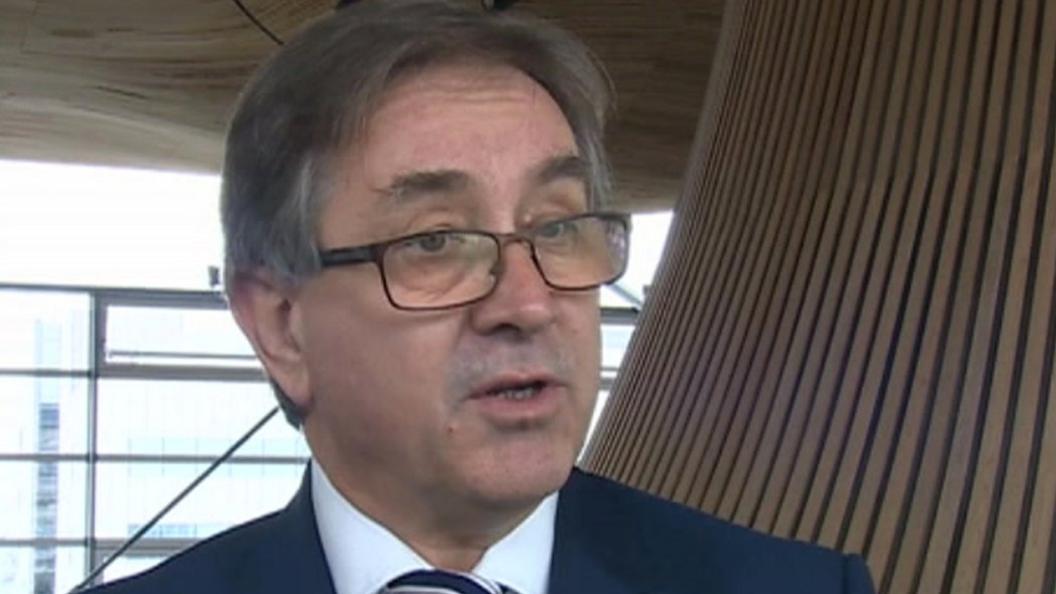
- Published4 November 2016
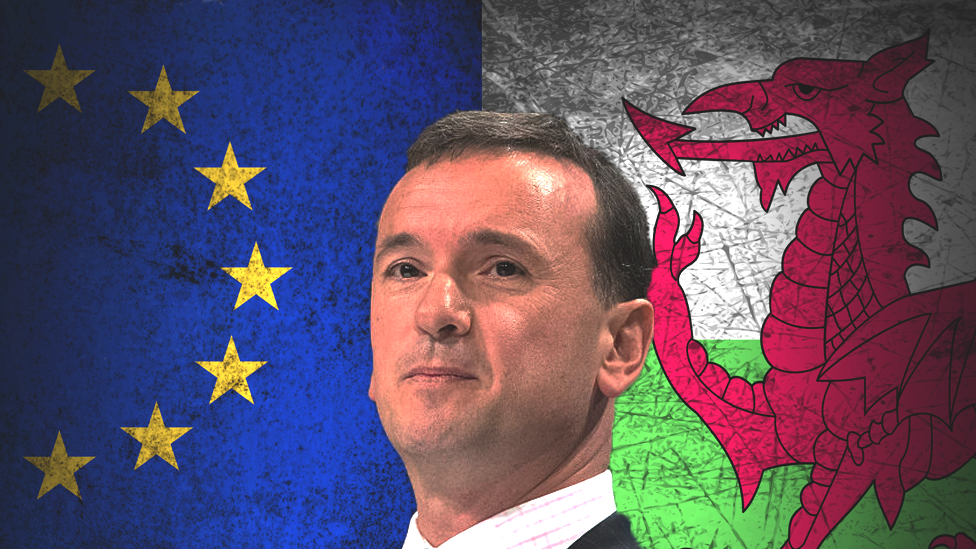
- Published3 November 2016
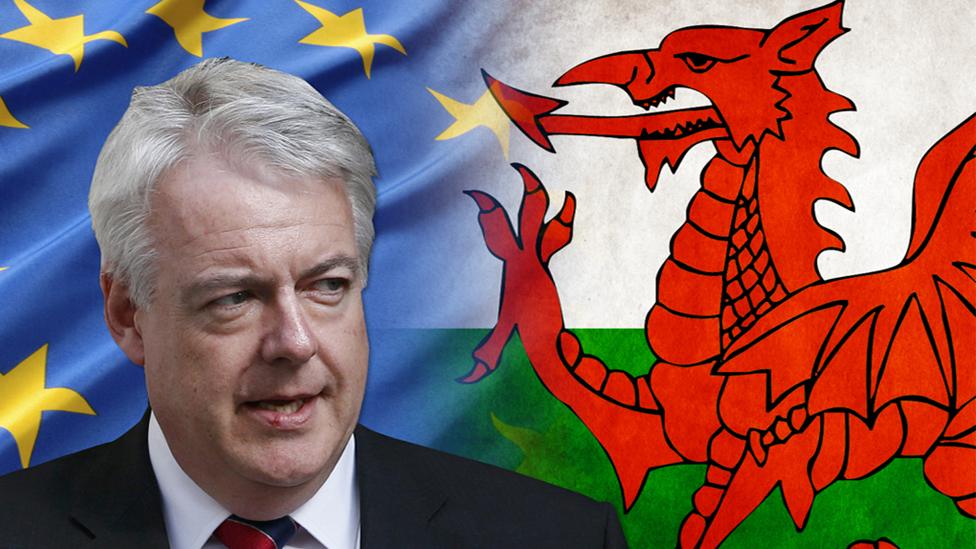
- Published3 November 2016
